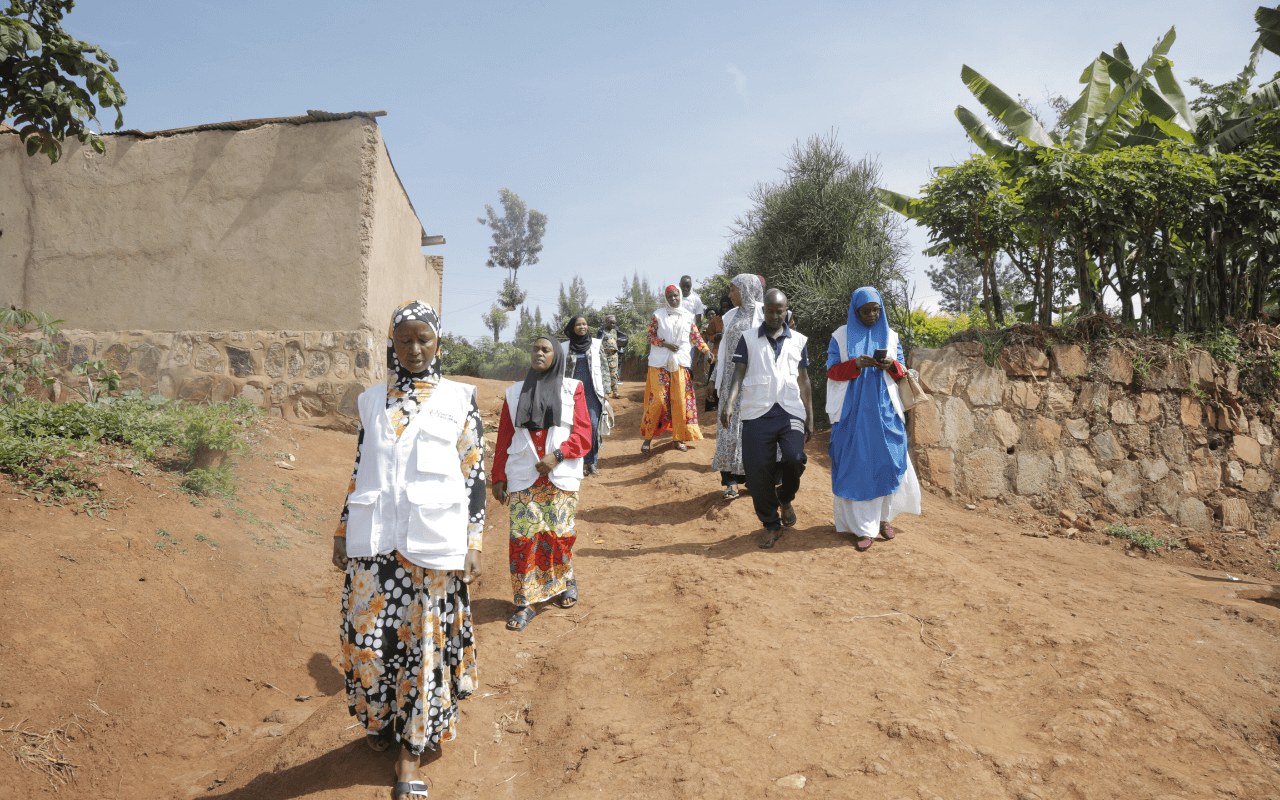One of the most difficult things to face in life is to know that you are dying and that you do not have much time left. It is even more difficult if you are suffering in great pain, unable to move or help yourself. This is where palliative care comes in; to support and help people who are at the end of their life by providing care and relief in the most dignifying and manageable way. Palliative care is not about prolonging life, but it is about improving the quality of life left.
For the last number of years, we have been working in Rwanda in collaboration with the one of the first community based palliative care organisations in the country, to help support the scale up and delivery of palliative care for dying and destitute patients who without this care, would die a lonely and painful death.
Importantly, our holistic approach means that we do not just look at the medical needs of a dying patient, but other important and dignifying needs such as a rehabilitating bathroom, providing shelter, psychosocial support, nutrition and transport to appointments. Not only does the patient themselves receive the resources they need to be comfortable, but their dependents and family around them are also supported to ensure they are in the best position and health to care for their child, sibling or parent too. This includes (but is not limited to) medical insurance, monthly food packages for the whole family and educational support for dependent children of terminally ill patients.

To strengthen this community-based palliative care service, we are:
- Working with a team of experts, including a specialist in Palliative Medicine, to bring about low-cost, high impact results.
- Ensuring a baseline standard of care in the organisation.
- Introducing a process for new and existing patients to ensure that the care provided is responsive to their differing needs.
- Introducing an End-of-Life-Care pathway to allow terminally ill patients to die with dignity and on their own terms.
- Implementing a robust learning syllabus for new volunteers to effectively learn how to provide the best care possible for our palliative care patients.
- Providing long-term training support to 35 community based volunteer healthcare workers and medical personnel on palliative care subjects with the aim of building and sustaining a long-term palliative care service.
- Providing financial support to hire a full time specialist nurse, meaning patients and their families no longer have to wait until the weekend to receive help - especially when an emergency arises such as when medicines or food run out - and therefore reducing an individual’s suffering as a result.
Today, on Micro Small & Medium Enterprises Day, we wanted to highlight an incredibly important element of our holistic Palliative Care Programme, which offers financial support for individuals to generate income independently through skills of their own, whether as a palliative care patient and breadwinner of the family or as a caregiver.
Rose’s Story
53 year old Rose is living with a range of health issues from diabetes to an amputated right leg. From 2019 onwards, she was supported with medical care, mental health support, health insurance, transport facilities to different referral hospitals, monthly nutrition packages and shelter. Over her time on our programme, she saw great physical and medical improvement, and was later given a small sum of money to begin running a shoe-selling business in order to generate income and become financially independent.
Support our work today: https://www.doctorsworldwide.org/donate



